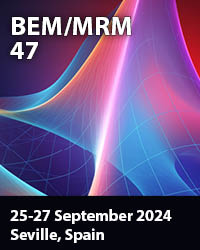Application Of The Finite Element Method For Static Design Of Plane Linear Systems With Semi-rigid Connections
Price
Free (open access)
Transaction
Volume
48
Pages
11
Page Range
547 - 557
Published
2009
Size
820 kb
Paper DOI
10.2495/CMEM090491
Copyright
WIT Press
Author(s)
D. Zlatkov, S. Zdravkovic, B. Mladenovic & M. Mijalkovic
Abstract
In real constructions, particularly in prefabricated constructions, structural connections can be neither absolutely rigid nor ideally elastic, but semi-rigid, which significantly changes the stresses and strains in the structure. Hence, there is a need to carry out the structural analysis and design taking into account the level of rigidity of the connections. For that purpose the ratio between real and absolutely rigid fixing of the member ends is assumed to be from zero to one. The design procedure for structures with semi-rigid connections under static load based on the classical deformation method has already been described in our previous works. Having in mind that matrix formulation of a problem is more convenient for contemporary structural analysis, this is applied to the design of the considered systems and is described in detail in this paper. The formation of the stiffness matrix for a bar with semi-rigid connections, as well as the vector of the equivalent load, is shown to depend on the level of rigidity of a joint connection. These matrices can be introduced into well-known computer programs to modify them for the static design of a plane linear system whose connections are semi-rigid. A numerical example regarding a two-floor reinforce concrete frame with a span of 24m of the AMONT prefabricated structural system in Morava Krusce, Serbia, is included in the paper. Keywords: semi-rigid connections, stiffness matrix, interpolation function, vector of equivalent load, prefabricated reinforced concrete structural system.
Keywords
semi-rigid connections, stiffness matrix, interpolation function, vector of equivalent load, prefabricated reinforced concrete structural system.





